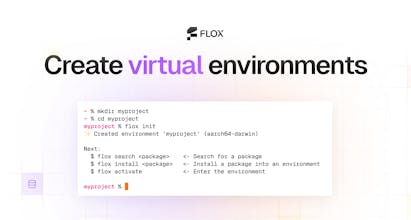
Flox
Build & share dev environments from 100k+ software packages
314 followers
Build & share dev environments from 100k+ software packages
314 followers
Flox empowers you to build quickly, easily creating reproducible, cross-platform development or application environments—without containers. Based on a simple declarative framework, Flox enables transparent access to all the resources on your system.
















Notion
Flox
Flox
Flox
Flox
Flox